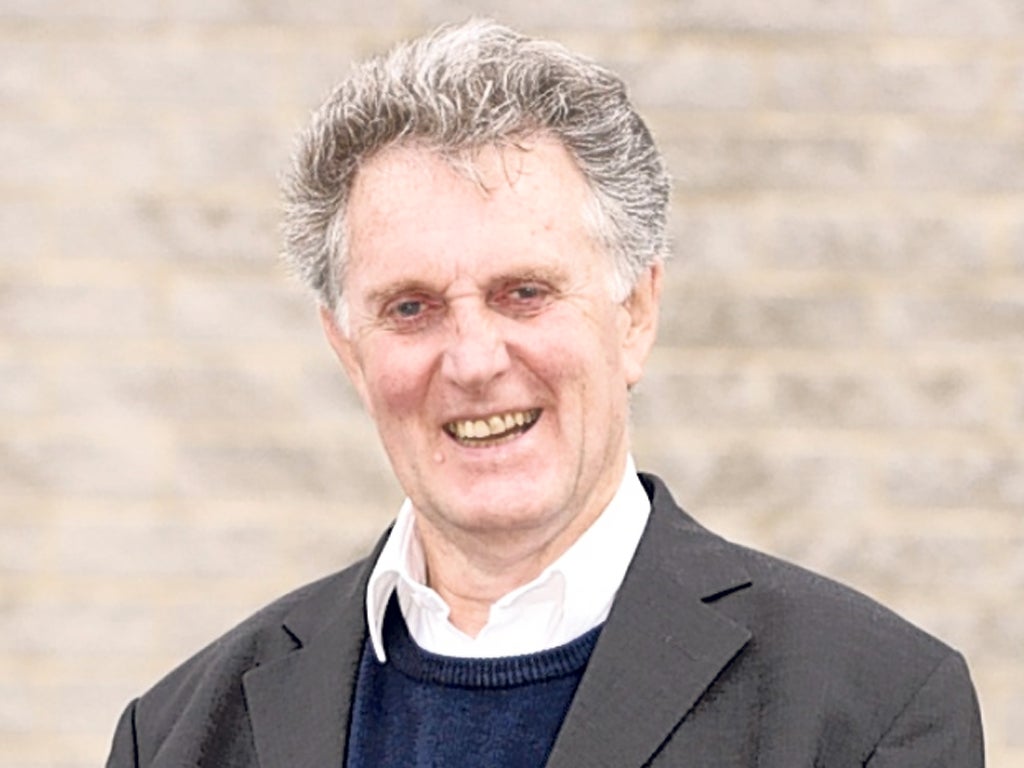
James Riordan, a self-proclaimed "working class oik from Portsmouth" and known to everyone as Jim, rose to become a respected Russianist, translator and author of over 20 books, including the standard studies of sport in the Soviet Union. He also claimed to be the first Briton to play for a Russian professional football team.
Riordan's childhood was not easy – his father left when Riordan was two and he shared a bed with three aunts – though he claimed to have enjoyed scrambling around Portsmouth's bombsites. However, when Riordan was nine he was in an air-raid shelter that was bombed, killing several people nearby and leaving him suffering from such severe shock that for over 50 years it was a repressed memory before he worked elements of it into his first novel.
Riordan signed up for national service and learned Russian, before graduating from the University of Birmingham, and qualifying as a teacher. A spell in Berlin, dismay at social injustice and resentment of officers' sense of entitlement hardened his left-wing sympathies and he joined the Communist Party of Great Britain in 1959.
In 1961 he went to Moscow to study politics at the Higher Party School, alongside Alexander Dubcek. There he was "treated" to meetings with luminaries including Yuri Gagarin and Ho Chi Minh.
As a translator, Riordan had to wade through Lenin's complete works, a task he found incredibly boring. However, he was also able to work on the Soviet Union's vast tradition of children's writing and this later inspired his own books.
In 1963 Riordan was a pall-bearer at Guy Burgess's funeral, and he helped Donald Maclean arrange cricket matches, but his true love was football, which "has given me many of the happiest memories of my life". He was devoted to Portsmouth FC, whose fortunes he followed throughout his Moscow sojourn.
In his autobiography, Comrade Jim: the Spy Who Played for Spartak (2008), he tells how, after playing for the British Embassy and having a few kick-abouts with Spartak, the Muscovites drafted him in as a ringer for a couple of games to replace the vodka-soaked centre-half. He was announced as "Yakov Iordanov" to conceal his identity, but at 6'5" he would have been a notable presence on the pitch. He particularly enjoyed playing for Spartak, widely seen as the "people's" team; it had been set up by trades unionists and some of its members had suffered Stalinist repression.
In 1965 a mistranslation of his article "The Growing Pains of Soviet Youth" led to the incredulous question, "how can pain increase as socialism develops?", after which he was expelled. Back home, the CPGB followed the Party line, labelled him a "bourgeois bohemian" and tried to expel him. Riordan fought back and stayed a Party member until its dissolution in 1991, though he frequently disagreed with it.
Riordan held academic positions at institutions including the universities of Bradford and Surrey. His major work was on sport under communism. He traced its beginnings in Sport in Soviet Society (1977), while Sport under Communism (1981) related it to the country's health and fitness regimen. His post-perestroika works show sportsmanship and "Olympic ideals" swept aside by the country's ruthless determination to win at all costs.
In 1980 he was the attaché to the British Olympic team in Moscow and when Alexei Smertin joined Portsmouth FC in 2003, Riordan helped to smooth the way.
Meanwhile, Riordan translated and reworked over 100 children's and folk stories, some told to him by local people, in anthologies including Tales from Central Russia (1976) and Tales from Tartar (1979). He branched out into other cultures, including Ghana and Japan, before his own first novel, Sweet Clarinet (1998), told the story of a young boy injured in the blitz who gains confidence through playing music. It won the NASEN Award and was shortlisted for the Whitbread Children's Book Award. Nine more novels followed, all infused with his intense feeling for social justice: children in war is the theme of The Prisoner (1999), while Africa is the setting for the slavery story Rebel Cargo (2007). The Sniper (2008) is based on the real story of a teenaged sniper in the Siege of Stalingrad.
Retired, Riordan had a regular, and regularly provocative, column in the Portsmouth News and lived with his third wife and two cats – one, unsurprisingly, named Pompey.
James William Riordan, Russianist: born Portsmouth 10 October 1936; married first Annick (marriage dissolved, two daughters); second Rashida (one son, two daughters); third Elena; died Portsmouth 11 February 2012.
Subscribe to Independent Premium to bookmark this article
Want to bookmark your favourite articles and stories to read or reference later? Start your Independent Premium subscription today.

Join our commenting forum
Join thought-provoking conversations, follow other Independent readers and see their replies